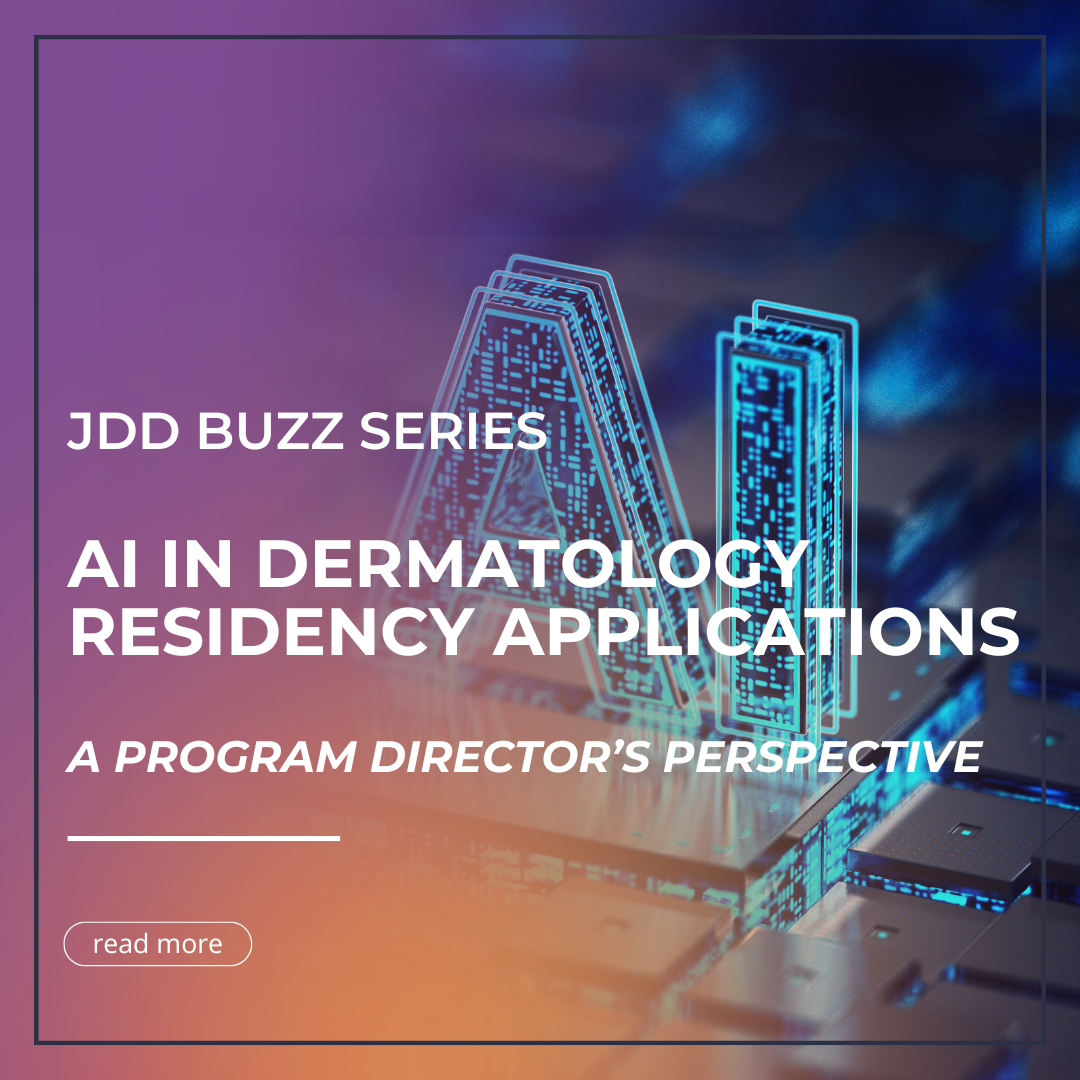Applicants for dermatology residency programs are increasingly using artificial intelligence (AI) technology to write or enhance their personal statements, according to a study published in the May Journal of Drugs in Dermatology. Is this ethical? Should applicants disclose AI usage? What role, if any, should AI have in applications for programs, positions, and grants?
I interviewed Marjorie Montanez-Wiscovich, MD, PhD, FAAD, residency program director and clinical associate professor at the University of Florida College of Medicine Department of Dermatology. Dr. Montanez-Wiscovich was one of the study’s authors.
What is your reaction to the study findings?
Our study on the use of AI when writing personal statements for dermatology residency applications showed that there has been an increase in AI usage detection with the advent of large language models (LLM). This was not surprising – we increasingly use technology in all aspects of our lives! What is also obvious is that the application process is not yet prepared for this use of technology. We hope that this article helps raise awareness and opens discussions on the implications of LLMs during the application process. This should ultimately lead to adapting the code of ethics and disclosures.
When evaluating applicants, how much weight do you put on personal statements?
Personal statements are a window into each candidate’s personality. They help highlight personality traits and professional characteristics that are not otherwise present in their application. In my role as residency program director, I employ a holistic approach during application review. Personal statements are essential when deciding which candidate fits best in our program and are equal in weight to other aspects of the application, such as academic performance, scholarly work, and volunteer experience.
Is there a role for AI in dermatology residency applications? If so, should applicants disclose AI usage?
The main concern I have in using LLMs for drafting personal statements is how they are used. While it would be acceptable to use this technology for grammar or improving ease of reading, I think it would be unethical to use LLMs to generate content ideas. Since personal statements should be “personal,” and a reflection on a subset of the candidate’s experiences that gives us insight into their character, it should be written in the candidate’s true voice and not by artificial intelligence.
Prospective dermatologists and research dermatologists commonly have to submit applications for programs, positions, and grants. What role should AI have in these applications?
Applications for research grants involve generating research questions and designing experiments to answer them. This should be done after carefully assessing available scientific literature. Similar to my views on using LLMs for personal statements, it would be useful to use AI for spelling, grammar, and language editing. However, I hesitate to use LLMs as the sole interpreter of scientific literature as not all published work is of equal scientific rigor. Conclusions from a scientific body of work need to be weighed by the strength of the original data. With this in mind, LLMs may also be helpful in brainstorming ideas but any research questions that are generated this way should be carefully evaluated. I would not recommend using LLMs to analyze data or generate experimental designs.
What other thoughts do you have on the usage of AI in dermatology residency applications?
Technology has permeated all aspects of our lives. Our study seeks to raise awareness on its increasing use in documents that help assess candidates’ personality traits. We hope this starts discussion on the ethics of LLM usage and what additional information should be disclosed to ensure a true, honest assessment of each candidate.
Did you enjoy this JDD Buzz article? You can find more here.

